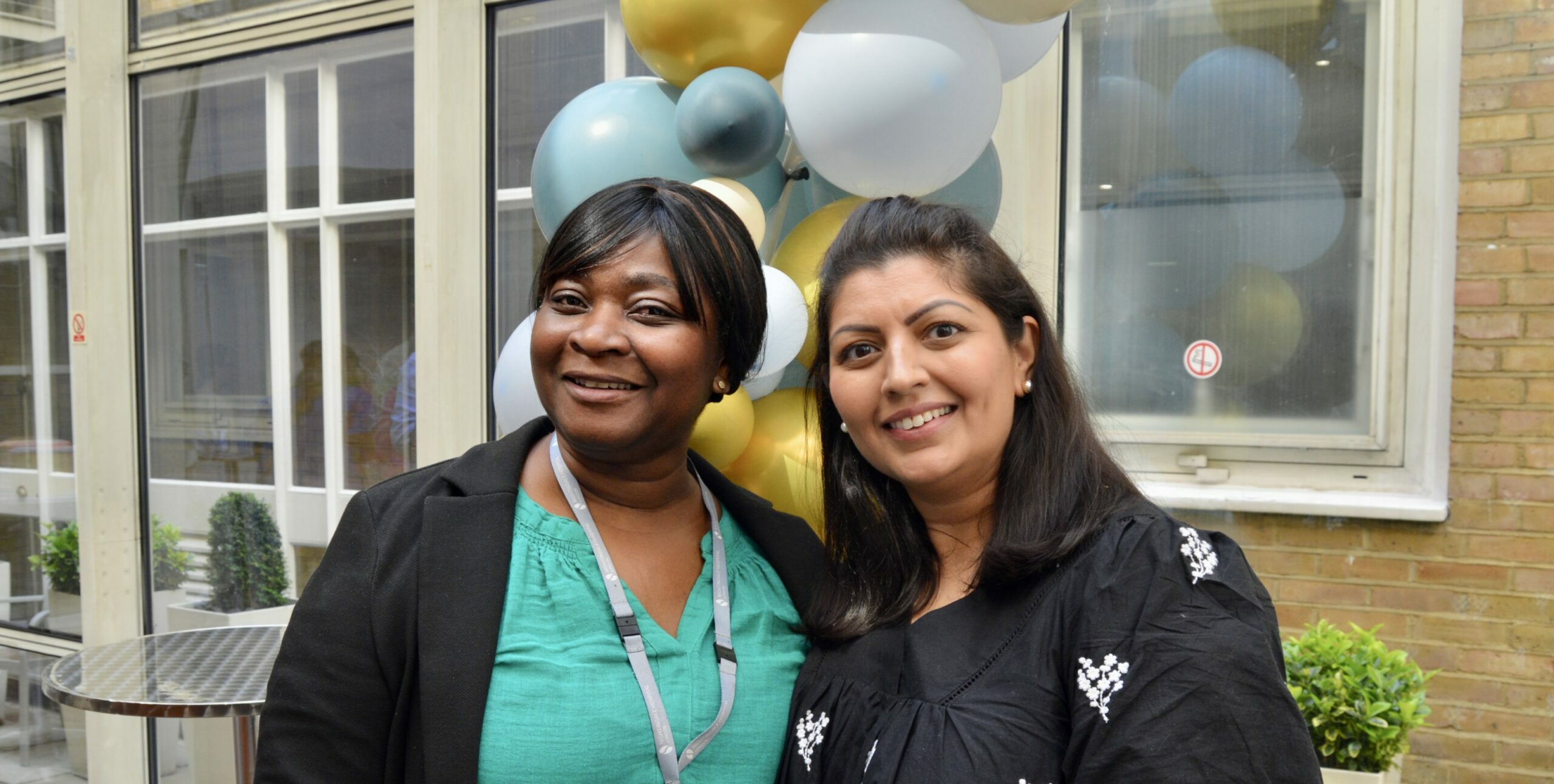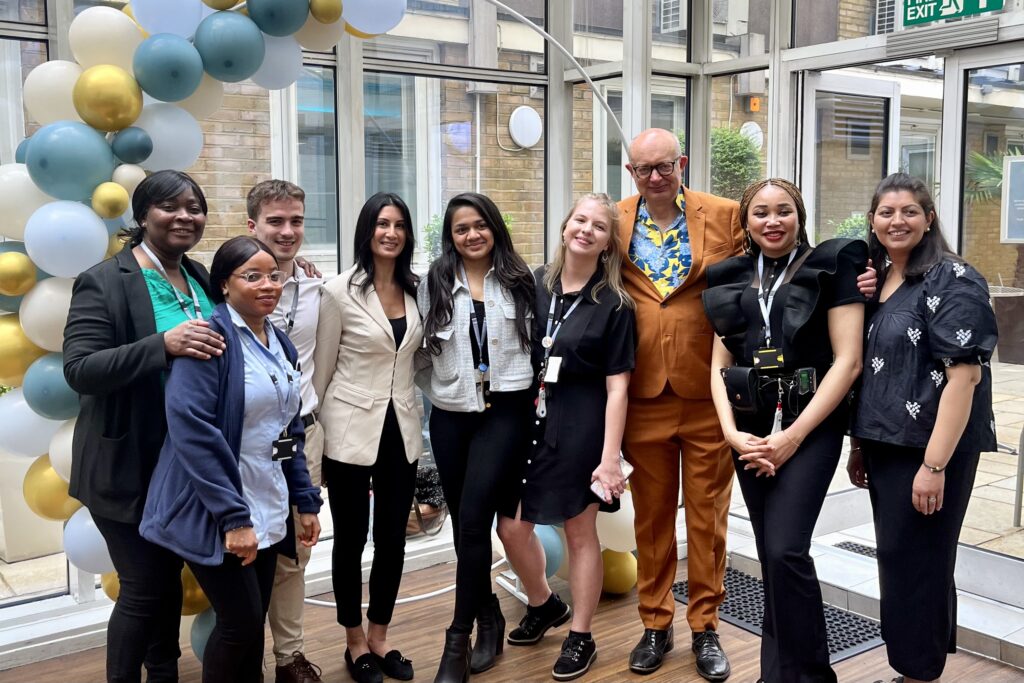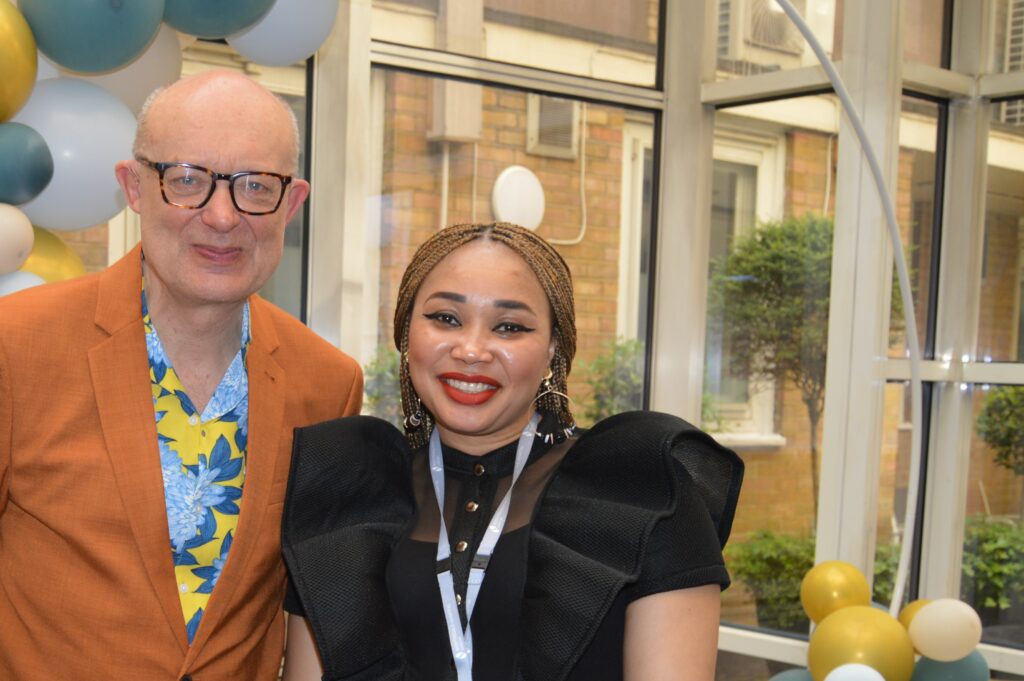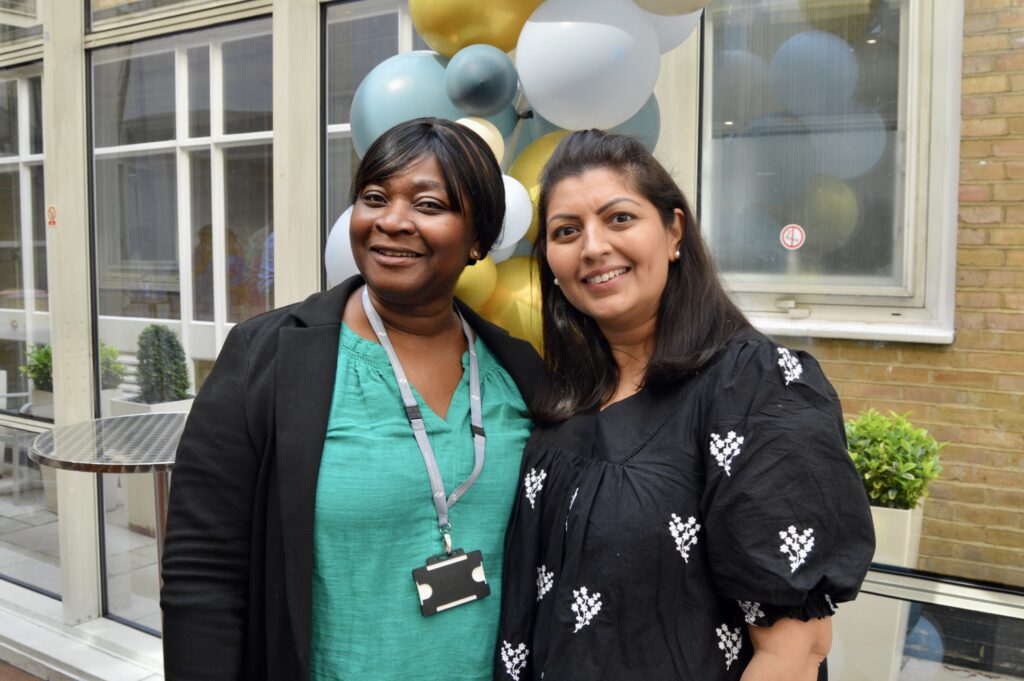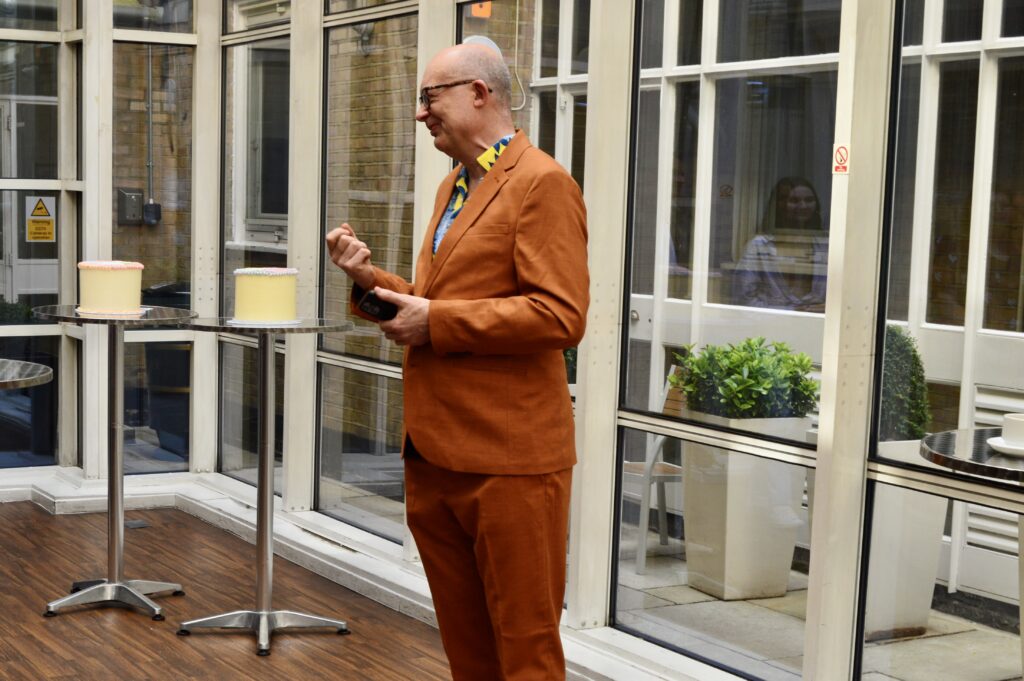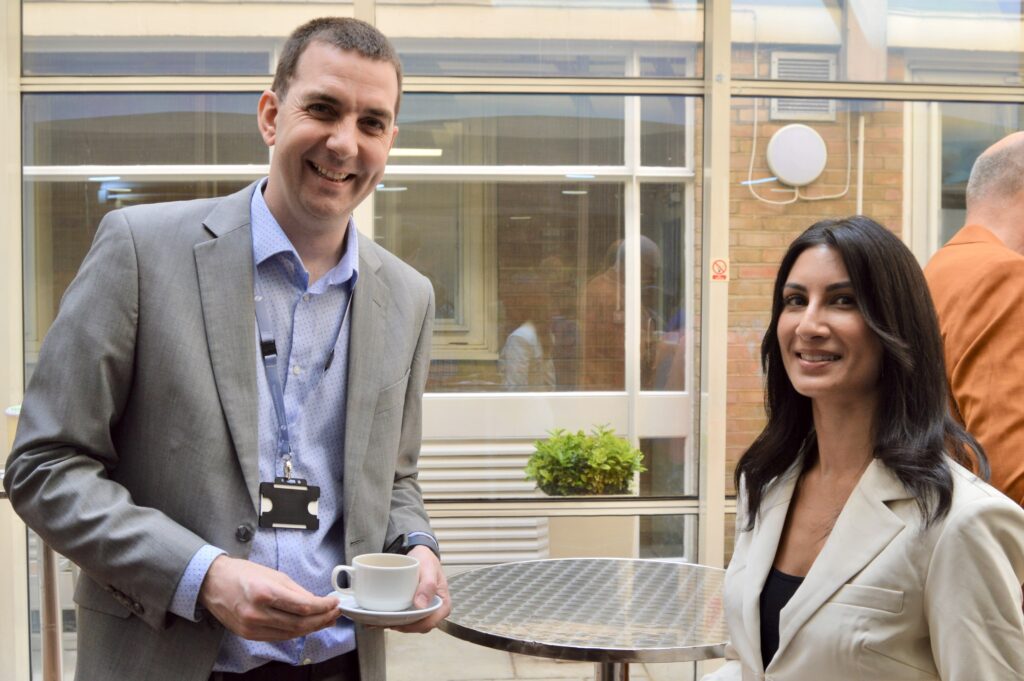On 3 May 2022, the OCD and related disorders unit at Nightingale Hospital opened its doors. Offering private specialised inpatient treatment for OCD-related disorders, the unit is the only of its kind in the UK.
Now, one year on, we celebrated the unit’s first anniversary by welcoming past patients back to the hospital, hosting representatives from OCD Action and The BDD Foundation as well as thanking our incredible team for their efforts over the last year. The celebrations involved a chance for past patients to reconnect with our staff, for all our guests to partake in some OCD-related activities and to hear reflections from Professor David Veale, Lead consultant and Kiren Kaulder, Lead therapist. We also heard from Katie, a past patient of the unit, about her experience and what the programme has meant for her life.
Our beginnings
As spoken by Kiren during her reflection, “When we set out to establish this unit, we knew there was a tremendous need for specialised care for those individuals struggling with OCD and body dysmorphia. We understood that traditional approaches to treatment were often inadequate, and patients were left feeling isolated and unsupported in their journey towards recovery.”
Our philosophy
Our therapy is evidence-based, and modelled on current research, as recommended by NICE guidelines on OCD and BDD. In line with this guidance, we currently provide a treatment programme focused mainly on cognitive behavioural therapy (CBT) and exposure and response prevention (ERP). Our emphasis is for patients to discover alternative ways of thinking and behaving, and to learn about their problems to maintain a long-term change.
“We have developed an evidence-based treatment programme unlike any other, and we have seen incredible results. We have witnessed individuals whose lives were once overtaken by anxiety begin to reclaim their lives and find the hope and confidence to move forward. We have seen families who were once overwhelmed, find a sense of relief as they watched their loved ones make progress and regain their sense of self,” said Kiren.
Our patients
Katie is one of those individuals. As part of her reflections, Katie gave a snapshot of her journey with OCD, her experience at Nightingale and what her life looks like now because of it.
“When I was admitted to Nightingale, I was desperate for it to change my life. But if I’m honest, I didn’t believe it could. I have had OCD for 19 years and over those years I have been admitted to multiple mental health units in an attempt to get better. Nightingale, however, was different. I ended up doing things I never thought I would do again. The support I received doing my ERPs on the ward was incredible. But perhaps more important and unique to Nightingale was the support I felt when going out into the community to tackle ‘real life’ things. It was during these trips out that I realised just how much I had been missing out on due to OCD and just how many things had happened in the world whilst I was caught up in my rituals. I guess what I really want to say is how grateful I am to this place, how this place is truly unique and has changed my life.”
The future
“Our mission is far from complete. We know that there is still work to be done and we are committed to continuing our efforts to provide the best possible care for our patients and to make a difference in the lives of those affected by OCD and related disorders.”
For more information about the OCD and related disorders unit, who the unit is suitable for and to learn about how you or someone you love can be referred to the unit, please visit our page here.
A full transcript of the reflections from Katie, Professor David Veale and Kiren Kaulder are below.
Katie, a past patient of the OCD and related disorders unit
When I was admitted to Nightingale, I was desperate for it to change my life. But if I’m honest, I didn’t believe it could. I have had OCD for 19 years and over those years I have been admitted to multiple mental health units in an attempt to get better. Sometimes things would improve a little bit but after being discharged it wasn’t long before things had gone back to how they were before. Nightingale, however, was different. When I came in, I expected that I would challenge myself a bit – maybe touch a few door handles or shake a few hands, but I ended up challenging myself so much more than that and making more progress than I thought was possible. I ended up doing things I never thought I would do again.
In a lot of places I have been, I spent a lot of the time talking about OCD, looking at the CBT model and filling in lots of worksheets about intrusive thoughts leading to behaviours. But I never really did anything proactive to change any of it. This is another way in which Nightingale was different. For the first time, with the joy that is ERPs, I was tackling my problems physically, head-on, and although it was hellish at times and I threw several strops, it was the first thing that actually led to progress. The support I received doing my ERPs on the ward was incredible. But perhaps more important and unique to Nightingale was the support I felt when going out into the community to tackle “real life” things. It was during these trips out that I realised just how much I had been missing out on due to OCD and just how many things had happened in the world whilst I was caught up in my rituals. I vividly remember going to a cash machine for the first time in about 15 years with Kiren and being shocked to find that paper money has changed. Then I went to use it at a shop and was even more shocked to find that coins had changed?! It sort of felt like waking up after years in an OCD coma and finding that I really was learning something new every day.
I knew that treatment at Nightingale was different and that for the first time, I was making progress, but something that really showed how much things were changing was when I went home to see friends and family. They couldn’t believe what I was now capable of doing. At Christmas, I sat on the floor and my mum was so proud and astonished that she took a photo and printed it on both a mug and a canvas. When I went to the chiropractor, I signed myself in on the touch screen for the first time and all the receptionists stared in absolute shock, jaws on the floor and said, “Sorry, but when did this happen?”
One friend even started crying when I picked something off the floor in front of her (in a happy way) and my girlfriend was so proud of all the things I could do for the first time in our relationship. It felt like the majority of what she said to me each day was constant, “Oh my God’s” and, “Wow, I am so proud of you”. I think the only person who isn’t thrilled about my recovery is my four-year-old niece who I have never played with before. For the four years she has been alive I have merely sat in chairs watching her play on the floor, too scared to sit with her or touch any of her toys. When I came home and started being able to do those kinds of things, sitting with her, building train tracks and towers with building blocks, her reaction was to tell me to stop taking all the good blocks. Hopefully one day she will learn to be grateful to Nightingale too.
Ultimately today, on the OCD unit’s first birthday I guess what I really want to say is how grateful I am to this place, how this place is truly unique and has changed my life – even though it might not always be fun whilst that change is happening.
I have always wanted to be a mental health nurse and the day before my admission to Nightingale, I found that I had been accepted to start training in September of this year. I thought that I might be good at it simply because I feel I understand a lot about mental illness from all my years of struggling in the chaos of it. But now I can honestly say I am looking forward to September to start my training and I no longer think that the reason I will be good at it is that I understand the illness, but that since my admission here, I understand recovery.
Professor David Veale, Lead consultant for the OCD and related disorders unit

It has been lovely to see so many familiar faces today. Thank you all so much for coming. I was just thinking, what a party this is but we need a bit of music. So I thought I would play some music for you all which has a message. Albeit not a very subtle message, but an important one.
‘We are family’ by Sister Sledge starts playing.
The first message I want to talk about today is exactly that – we are family. What we mean by that is I’m hoping this unit will be part of a family. People with OCD and related disorders, their carers, clinicians, researchers and charities are all part of one big family for OCD-related disorders. And I hope we will be viewed as part of that family.
The other song I wanted to play is ‘Let’s Stick Together’ by Wilbert Harrison and sung by Bryan Ferry. The lyrics are important because the OCD community have to stick together when there is so much nonsense we have to put up with. There are many examples such as a person with OCD who is having intrusive sexual thoughts about being a paedophile who gets sent off to forensic services or safeguarding or whether it is being told, “Well we’re all a little bit OCD, aren’t we?”. Throughout all of this, we have to stick together because the community is often misunderstood. We also often do lots of unusual things in the treatment programme. In the right context, we ask our patients to put their hands down the toilets or to have an image of stabbing someone whilst holding a knife. Other people don’t get it – we are different, and we are part of that community.
I don’t think we’re fully recognised yet. One day we will have OCD and related specialities all over the country – throughout the NHS and the private sector. We will be fully recognised eventually. But right now, we are still quite small.
But today, on the one-year anniversary, we are starting something new and I am really grateful to you all that we are part of that family.
Kiren Kaulder, Lead therapist for the OCD and related disorders unit

Welcome and good afternoon to you all. It is a great pleasure to stand here before you today, to celebrate the one-year anniversary of our specialist inpatient OCD and related disorders unit.
Most of you will have heard me say that life is tough and brings us many challenges, that’s what brought us together, but we must always remember to notice the positives. So here we are today to acknowledge our achievements together. This past year certainly has been a remarkable journey, filled with accomplishments and it has been an honour to be a part of such a dedicated and passionate team, from our fabulous nurses, superstar students, understanding housekeepers, dedicated therapists and managers who all made our vision a reality.
When we first set out to establish this unit, we knew that there was a tremendous need for specialised care for those individuals struggling with OCD and body dysmorphia. We understood that traditional approaches to treatment were often inadequate, and patients were left feeling isolated and unsupported in their journey towards recovery.
But we also knew that with the right resources, and the right team in place, we could make a difference in the lives of these individuals. And over the past year, that is exactly what we have worked hard at.
We have developed an evidence-based treatment programme unlike any other, and we have seen incredible results. We have witnessed individuals whose lives were once overtaken by anxiety begin to reclaim their lives and find the hope and confidence to move forward. We have seen families who were once overwhelmed, find a sense of relief as they watched their loved ones make progress and regain their sense of self.
Our mission is far from complete. We know that there is still work to be done and we are committed to continuing our efforts to provide the best possible care for our patients and to make a difference in the lives of those affected by OCD and related disorders.
Finally and most importantly, to our alumni patients, we want to say thank you. In allowing us to help you, you have also helped us, to continue shaping and developing a unique service. Thank you for your trust, hard work and honest opinions. You have allowed us to evolve our ward into a safe, supportive, and understanding environment for patients to receive the care they need. Whilst challenging you with exposure therapy we also try hard to build moments of joy by bringing in a new table football, introducing you to self-care Sundays, group ice-cream runs or running from geese in Regents Park because these lessons are just as important.
So today, as we celebrate this milestone, I want to thank each and every one of you for choosing us, in this important work. I am very proud of how far you, and we, have come.
Specialist OCD and related disorders inpatient service at Nightingale Hospital
The OCD and related disorders unit at Nightingale Hospital is a 6-bedded inpatient service, dedicated to treating patients with OCD. It is a private and unique service, specialising in the intensive delivery of cognitive behaviour therapy (CBT). The unit is under the leadership of world-renowned expert, Professor David Veale.
An inpatient admission will usually be suggested if:
- Your symptoms are very severe, you cannot look after yourself properly or you have thoughts about suicide
- You have other serious mental health problems, such as an eating disorder, schizophrenia, psychosis or a severe depression
- Your OCD prevents you from getting to a clinic for treatment
For more information about the OCD and related disorders unit and to learn about how you or someone you love can be referred to the unit, please visit our page here.
Related Conditions
Treatment approaches
Relevant specialists
-
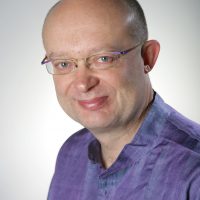
Professor David Veale
Lead consultant for OCD and related disorders at Nightingale Hospital
People stories
-

ERP isn't easy or enjoyable, but it does work - A former patient's journey with OCD
